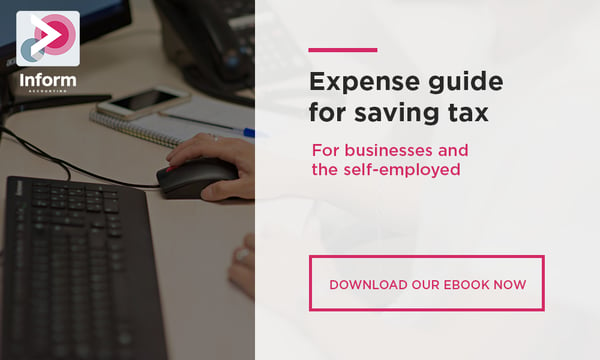BLOG COMPANY TAXES, EXPENSES & RATES
Invest tax efficiently
Tax efficient investment comes with varying risk profiles, from high to low. We look at both ends of the spectrum.
Venture capital schemes
These offer generous tax incentives to individuals investing in young, higher risk companies which are not listed on a recognised stock exchange, and would otherwise struggle to access finance.
Very specific conditions need to be met to qualify for tax relief under the schemes, including how long the shares must be held for. Do please contact us if you would like to discuss your investment strategy.
The Enterprise Investment Scheme
The main tax advantages of the Enterprise Investment Scheme (EIS) are Income Tax relief on the investment (at 30% on investments of up to £1 million per year; with a £2 million yearly limit for knowledge-intensive companies); and a Capital Gains Tax (CGT) exemption on gains made when the EIS shares are disposed of. In addition, you may be able to defer capital gains on the disposal of other assets when you purchase EIS shares.
Seed Enterprise Investment Scheme
This also provides generous tax relief for individuals investing in new, unquoted, growing companies. Qualifying investors can invest up to £200,000 per tax year in qualifying companies, receiving Income Tax relief of up to 50% of the sum invested. Unused relief in one tax year can also be carried back to the preceding tax year. There is also favourable CGT treatment.
Venture Capital Trusts
Venture Capital Trusts (VCTs) complement the EIS and Seed Investment Scheme; but whereas the EIS requires investment directly into the shares of a company, VCTs work via indirect investment through a mediated fund. VCTs are quoted companies required to hold at least 70% of their investments in shares or securities in qualifying unquoted companies.
Income Tax relief of 30% is available on subscriptions for VCT shares, up to a limit of £200,000 per tax year. Dividends on the first £200,000 are also tax free.
This is a high-level overview designed to give an indication of some of the potential tax advantages of these schemes. For personalised, in-depth advice, do please get in touch.
Individual Savings Accounts
Individual Savings Accounts (ISAs) are free of Income Tax and CGT and do not impact the availability of the Savings or Dividend Allowances. The tax benefits of ISAs continue to be attractive, especially in view of the reduction in the CGT annual exemption over recent years.
There are four types of ISAs:
-
cash ISAs
-
stocks and shares ISAs
-
innovative finance ISAs
-
lifetime ISAs.
Who can invest?
Adults: ISAs are available for anyone over 18, resident in the UK. To open a Lifetime ISA (LISA), you must also be under 40.
ISAs are an individual investment: you cannot hold an ISA with anyone else, such as a spouse. Each spouse has their own yearly subscription limit, so as a couple you can invest a maximum of £40,000 each tax year.
Withdrawals can be made at any time, without losing the tax benefits. Note, however, that there are different rules for LISAs. These get a 25% government top-up intended to help towards purchase of a first home or provide for later life. Where money is withdrawn for any other reason, the top-up is clawed back. An exception is made for those who are terminally ill, with less than 12 months to live.
Parents or guardians with parental responsibility can open a Junior ISA for a child under 18 who lives in the UK. Junior ISAs are covered in our Year End Tax Planning Guide 24/25.
Action Point: review ISA position each year
We recommend taking stock of your position before 5 April each year. ISA limits can’t be carried forward into future years. They are lost if not used by the end of the tax year
Investment limits
There is a limit on the amount that can be saved in an ISA per tax year. For adults, the limit is £20,000 in 2024/25, and will remain frozen at this level until April 2030. You can invest this in one ISA or split the investment over multiple accounts. The LISA has slightly different rules: investment into a LISA is capped at £4,000 per year. Whilst you can only invest in one LISA in a tax year, you can, subject to the overall £20,000 cap, invest in multiple ISAs.
Need advice on investment schemes?
EIS, SEIS and venture capital schemes are complex areas and specialist advice should be sought if you want to attract such investment. Our tax experts are on hand at every stage to guide you through what can seem like a minefield of eligibility requirements. Find out more here.
Looking for more tax planning tips?
With the closure of the 24/25 tax year approaching on April 5, 2025, there remains an opportunity to assess your tax strategies and capitalise on current year-end possibilities. Inform Accounting's Year End Planning Guide offers advice and tactics to ready yourself for the financial year's end, maximising available tax allowances and reliefs
Read more of Inform's tax blogs:




.jpg?width=1500&height=1000&name=amy-hirschi-K0c8ko3e6AA-unsplash-(5).jpg)

